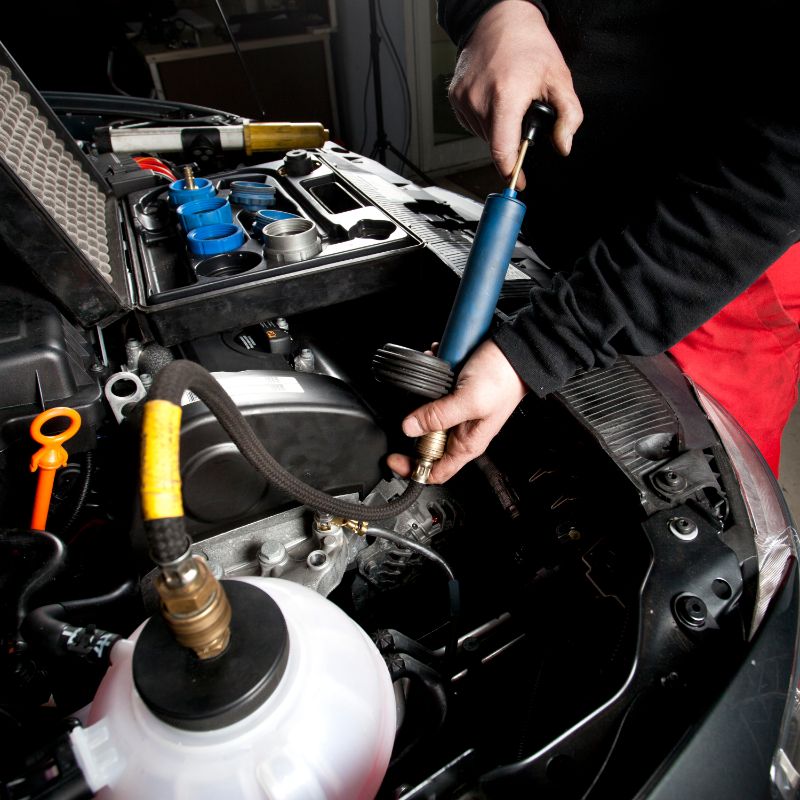Is your car’s cooling system not working as it should? Are you experiencing only wind from the fan instead of cool air? This issue can be quite frustrating, especially during hot weather or long drives. In this troubleshooting guide, we will explore some possible causes for this problem and provide potential solutions to help you resolve it.
1. Insufficient Refrigerant Levels
One common reason for the lack of cooling in a car is insufficient refrigerant levels. The refrigerant is responsible for absorbing heat from the air, providing cool air through the vents. Over time, refrigerant can leak or become depleted, resulting in reduced cooling performance. If you suspect low refrigerant levels, it is recommended to have a professional check and refill the refrigerant as necessary.
2. Faulty Compressor
The compressor plays a vital role in the cooling process by pressurizing the refrigerant and circulating it through the system. A faulty compressor can hinder the proper functioning of the cooling system, leading to inadequate cooling. Signs of a faulty compressor may include strange noises, leaks, or a complete lack of cool air. If you suspect a compressor issue, it is best to have it inspected and replaced by a qualified technician.
3. Clogged Condenser
The condenser is responsible for releasing heat absorbed by the refrigerant. Over time, it can accumulate dirt, debris, or even small rocks, obstructing airflow and reducing the cooling efficiency. Regularly cleaning the condenser or having it professionally cleaned can help restore proper cooling performance.
4. Malfunctioning Blower Motor
The blower motor is responsible for pushing air through the vents. If the blower motor malfunctions, you may experience weak airflow or no airflow at all. This can give the impression that the cooling system is not functioning correctly. A qualified technician can diagnose and replace the faulty blower motor to restore proper airflow.
5. Electrical Issues
Sometimes, cooling system problems can be attributed to electrical issues. A blown fuse, a faulty relay, or a wiring problem can disrupt the operation of the cooling system. Checking the fuses and relays related to the cooling system and inspecting the wiring for any visible damage can help identify and resolve electrical issues.
6. Thermostat Failure
The thermostat regulates the engine temperature and controls the flow of coolant through the cooling system. A malfunctioning thermostat can lead to improper cooling system operation. If the thermostat is stuck closed or open, it can cause the car to overheat or prevent the coolant from circulating properly, resulting in insufficient cooling. Replacing a faulty thermostat can help restore normal cooling functionality.
7. Cooling System Leak
A cooling system leak can also contribute to poor cooling performance. A leak can lead to a loss of coolant, resulting in inadequate cooling. Inspect the cooling system for any visible signs of leaks, such as coolant puddles under the car or a sweet smell inside the cabin. If you detect a leak, it is crucial to have it repaired promptly to prevent further damage to the cooling system.

Conclusion
Dealing with a car cooling system that is not working properly can be a frustrating experience, particularly during hot weather. However, by understanding some of the potential causes and solutions mentioned above, you can take appropriate steps to resolve the issue. If you are unable to identify or address the problem on your own, it is recommended to consult a qualified mechanic or car cooling system specialist to diagnose and repair the issue.
Remember, proper maintenance and regular servicing of your car’s cooling system can help prevent issues from arising in the first place. Stay proactive and keep your car’s cooling system in optimal condition to ensure a comfortable driving







